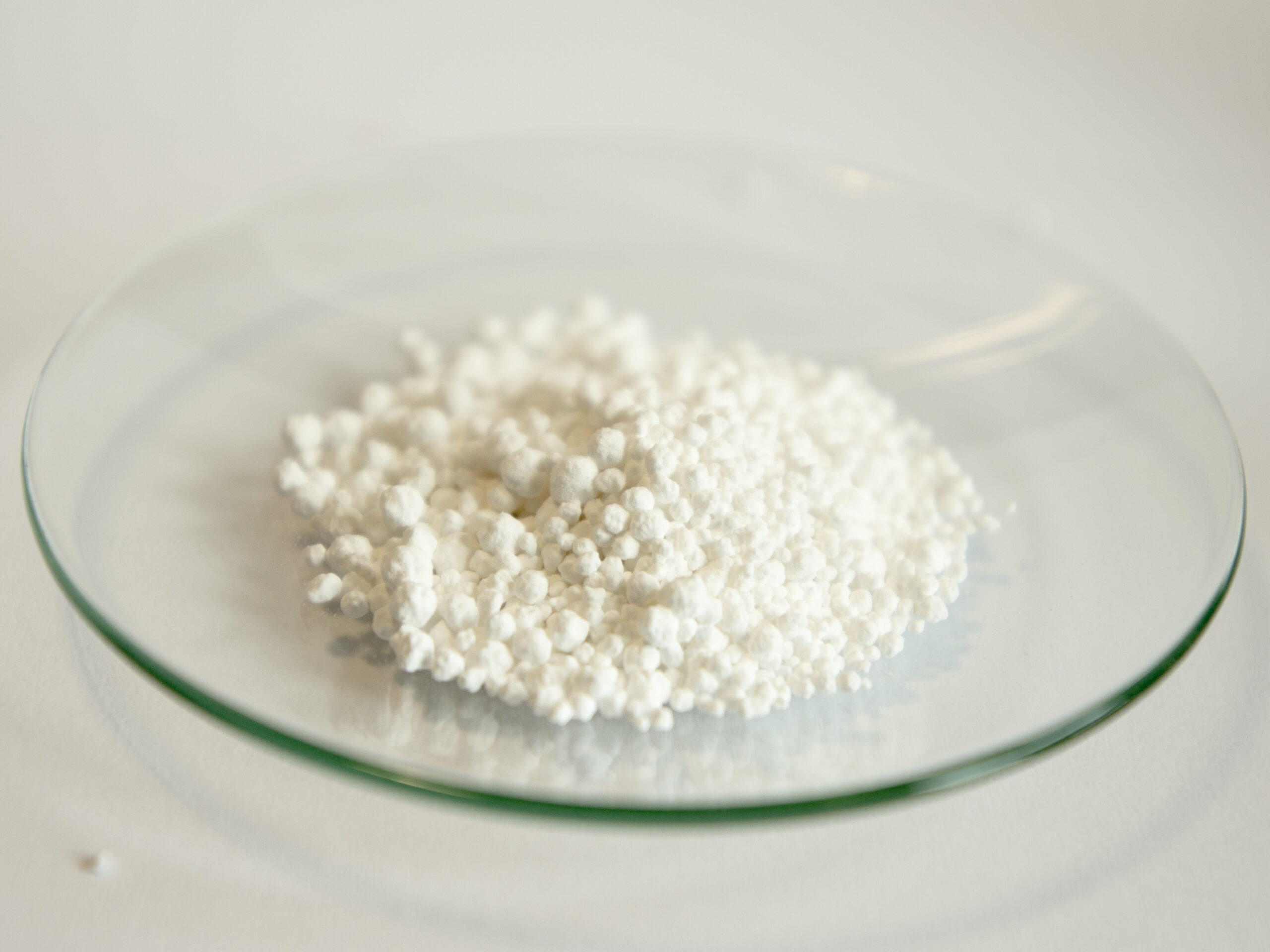Table of Contents
Introduction to Health and Kombucha
The growing interest in healthier lifestyle choices has brought the spotlight onto a unique beverage: kombucha. Known for its fizzy texture and tangy flavor, kombucha is more than just a popular drink—it’s part of a centuries-old tradition rooted in wellness. Originating in ancient Asia over 2,000 years ago, this fermented tea has earned its place as a powerful ally in the world of natural health. As the movement toward clean eating and holistic wellness gains momentum, the synergy between health and kombucha is becoming increasingly evident. Especially across North America, kombucha has gone from niche health stores to mainstream supermarket shelves, offering an accessible way to support everyday well-being.
Kombucha and Gut Health: A Deeper Look
One of the strongest connections between health and kombucha lies in its powerful effect on gut health. Kombucha is rich in natural probiotics—live beneficial bacteria that help nourish the digestive system. These friendly microbes support smoother digestion, enhance nutrient absorption, and maintain a balanced gut flora, which is essential for everything from immunity to mental clarity.
Gut health is often referred to as the “second brain,” and kombucha supports this system by restoring harmony to the microbiome. The presence of organic acids, enzymes, and polyphenols further enhances kombucha’s ability to aid in detoxification and reduce gastrointestinal discomfort. The link between digestive wellness and overall vitality makes kombucha a simple yet effective addition to your health routine.
Kombucha and Immunity: Your Natural Defense
The relationship between health and kombucha is perhaps most powerful when looking at immune support. A healthy immune system relies heavily on gut integrity, and since kombucha strengthens the gut, it indirectly boosts the body’s natural defenses. Nearly 70% of your immune cells are located in the gastrointestinal tract, and kombucha’s probiotic content plays a critical role in keeping this area functioning optimally.
But it doesn’t stop there. Kombucha is also loaded with B vitamins, antioxidants, polyphenols, and organic acids like gluconic and acetic acid. These compounds help neutralize free radicals, reduce inflammation, and fight off harmful bacteria. The tea base used in kombucha—often green or black tea—further contributes potent antioxidants that promote cellular health and reduce oxidative stress.
Studies, including those featured in the Journal of Food Microbiology, highlight kombucha’s ability to offer antimicrobial and antioxidant effects. Many drinkers report fewer colds, increased energy, and quicker recovery times during seasonal illnesses. Clearly, the fusion of health and kombucha offers both preventative and restorative benefits for immune wellness.all linked to their consistent intake of kombucha.

The Detoxifying Power of Kombucha
One of the most fascinating aspects of the relationship between health and kombucha is its powerful detoxification potential. Kombucha supports the body’s natural cleansing processes, particularly in the liver, which plays a central role in filtering toxins from the blood. The key player here is glucuronic acid, a compound produced during the fermentation of kombucha. This acid binds with harmful substances in the liver and helps flush them out through the kidneys, promoting a more efficient detox cycle.
Additionally, kombucha contains other organic acids such as lactic acid, gluconic acid, and acetic acid—all of which work together to combat harmful bacteria and support cellular regeneration. These acids not only aid liver function but also improve digestion, which further contributes to the body’s ability to eliminate waste effectively.
For individuals looking to naturally detoxify without extreme cleanses or chemical supplements, the synergy between health and kombucha offers a gentle yet effective solution. Its detoxifying properties have made it a go-to beverage for those seeking better energy, clearer skin, and improved metabolic health.
Weight Loss and Kombucha: A Natural Ally
The connection between health and kombucha also extends into the realm of weight management, making this fermented tea a favorite among those seeking to lose weight naturally. Kombucha’s unique composition includes acetic acid, a powerful compound known for its role in boosting metabolism and inhibiting fat storage.
Acetic acid works by influencing enzymes involved in fat metabolism—reducing those that promote fat accumulation and enhancing those that burn fat for energy. This metabolic regulation can help the body become more efficient in using stored fat, making kombucha an excellent addition to any weight-loss routine. Furthermore, its low calorie count and slight acidity help suppress appetite, reducing the likelihood of overeating.
One of the most practical benefits of kombucha is that it serves as a satisfying replacement for sugary sodas and processed beverages. Unlike drinks loaded with high-fructose corn syrup, kombucha delivers flavor without the sugar crash, helping individuals maintain steady energy and fewer cravings throughout the day. In this way, the link between health and kombucha is both functional and sustainable—offering support not just for weight loss, but for long-term wellness and balance.
Mental Clarity and Emotional Wellness: The Mind-Body Impact of Kombucha
The relationship between health and kombucha isn’t limited to physical benefits—it also plays a powerful role in enhancing mental clarity and emotional well-being. As science continues to uncover the importance of the gut-brain axis, kombucha emerges as a natural ally in promoting mood stability and cognitive function. The gut produces and regulates key neurotransmitters such as serotonin and dopamine, both of which influence emotional balance, concentration, and overall mental clarity.
Kombucha is packed with probiotics that help restore and maintain a healthy gut microbiome. This gut balance has a direct impact on brain chemistry, reducing symptoms of anxiety, stress, and brain fog. Through this mind-body connection, health and kombucha come together to offer support not just for your digestive tract, but also for your emotional and mental states.
In addition to probiotics, kombucha delivers essential B vitamins—particularly B1 (thiamine), B6, and B12—which are known to boost energy, support the nervous system, and improve focus. Regular drinkers often report a greater sense of mental sharpness and emotional calm, especially when replacing caffeine-heavy or sugar-laden drinks with kombucha. As people search for natural ways to cope with daily stress and mental fatigue, kombucha proves to be a valuable tool in achieving emotional balance and cognitive wellness.
Kombucha for Better Joint Health
Joint discomfort is a common issue that affects both aging individuals and those with physically demanding lifestyles. Fortunately, the link between health and kombucha also touches on joint support and inflammation relief. One of the notable components of kombucha is glucosamine, a compound widely recognized for promoting joint health. Glucosamine encourages the repair of cartilage and helps reduce joint inflammation—making kombucha a naturally supportive drink for mobility and flexibility.
The anti-inflammatory properties of kombucha are particularly beneficial for those suffering from arthritis, stiffness, or long-term joint pain. By incorporating kombucha into a regular wellness routine, many find improvements in joint comfort, less swelling, and enhanced ease of movement. The connection between health and kombucha becomes especially valuable for individuals aiming to maintain joint strength without relying heavily on medications.
For athletes and active people, kombucha serves as a nourishing recovery beverage. Whether you’re a frequent runner or weekend hiker, kombucha’s blend of anti-inflammatory and regenerative properties can assist in faster recovery and help protect your joints from wear and tear over time.
Key Takeaways:
- Glucosamine in kombucha supports cartilage regeneration and joint flexibility.
- Natural anti-inflammatory effects make kombucha helpful for arthritis relief.
- Ideal for athletes seeking joint recovery and long-term mobility support.
Scientific Backing of Health and Kombucha
The growing popularity of health and kombucha is backed by a solid foundation of scientific research. Modern studies continue to confirm kombucha’s broad health potential—especially in detoxification, digestion, and disease prevention. These findings offer more than anecdotal value; they validate kombucha’s role as a scientifically credible wellness drink.
A 2014 study published in the Journal of Food Science found that glucuronic acid in kombucha aids in liver detoxification by binding to toxins and facilitating their removal from the body. This enhances the liver’s natural function and reinforces kombucha’s reputation as a powerful detoxifier. It’s another way in which health and kombucha are closely intertwined.
Kombucha is also a rich source of polyphenols and antioxidants—compounds that help protect cells from oxidative stress, a major contributor to aging and chronic diseases. According to a 2019 NCBI study, regular consumption of antioxidant-rich beverages like kombucha can reduce the risk of conditions such as heart disease and diabetes.
Moreover, kombucha is abundant in probiotics that improve gut flora, leading to better digestion, immune response, and nutrient absorption. These benefits, increasingly supported by scientific literature, highlight the growing importance of health and kombucha in holistic and preventive health strategies.
Key Takeaways:
- Research confirms kombucha’s detoxifying effects and liver support.
- Antioxidants in kombucha help prevent chronic disease.
- Probiotics support digestive, immune, and systemic wellness.

How to Brew Kombucha at Home: A Step-by-Step Guide
To fully embrace the benefits of health and kombucha, consider brewing your own kombucha at home. Homemade kombucha is not only cost-effective but also gives you full control over ingredients, sweetness levels, and flavor customization. Here’s a beginner-friendly guide to start your home-brewing journey.
Step 1: Gather Ingredients
- Tea: Black or green tea is ideal.
- Sugar: White granulated sugar works best.
- SCOBY: A Symbiotic Culture of Bacteria and Yeast.
- Starter Tea: A bit of already brewed, unflavored kombucha.
- Glass Jar: A wide-mouth, sterilized jar.
- Cloth + Rubber Band: For covering and allowing airflow.
Step 2: Brew and Cool the Tea
Boil water, steep the tea, and dissolve the sugar completely. Let the mixture cool to room temperature.
Step 3: Add the SCOBY
Transfer the cooled tea into the glass jar, pour in the starter tea, and gently place the SCOBY on top.
Step 4: Begin Fermentation
Cover the jar with a cloth and secure it with a rubber band. Leave it in a warm, dark space for 7–14 days, tasting occasionally for sweetness vs. tartness.
Step 5: Flavor and Bottle
Once the desired flavor is achieved, remove the SCOBY and pour the kombucha into bottles. Add fresh ingredients like ginger, mint, or fruit if desired.
Step 6: Carbonation (Optional)
Seal the bottles for 2–3 days at room temperature for natural fizziness. Then refrigerate and enjoy your homemade kombucha!
The DIY process not only enhances your connection to health and kombucha, but also ensures purity, freshness, and personalized health benefits.
Key Takeaways:
- Home brewing is economical and gives full control over ingredients.
- Kombucha can be flavored naturally during a second fermentation.
- Cleanliness and proper fermentation time are key to a safe, healthy brew.

Health and Kombucha: Possible Side Effects to Consider
While the relationship between health and kombucha is filled with well-documented benefits—like improved digestion, detoxification, and immune support—it’s also important to be mindful of potential side effects. Like any wellness product, kombucha should be consumed in moderation to avoid discomfort or adverse reactions. Let’s explore the common concerns and how to enjoy kombucha safely.
1. Kombucha and Digestive Health: Avoiding Discomfort
Kombucha supports gut health thanks to its rich probiotic content, which helps balance the microbiome and improve digestion. However, for those new to fermented foods, consuming too much too soon can cause gas, bloating, or mild stomach cramps. This is especially true if your gut flora isn’t yet accustomed to probiotics.
Health and kombucha go hand in hand, but starting slow is key to avoiding digestive upset.
Tip: Begin with a small serving (about 4–6 ounces per day) and gradually increase your intake. This allows your digestive system to adjust to the probiotics without triggering uncomfortable symptoms.
2. Caffeine and Kombucha: Sensitivity Matters
Because kombucha is brewed from tea, it contains naturally occurring caffeine. While the caffeine content is relatively low compared to coffee or energy drinks, it can still affect individuals who are caffeine-sensitive. Symptoms like restlessness, jitteriness, or trouble sleeping may occur if kombucha is consumed in large amounts or late in the day.
Understanding the relationship between health and kombucha means recognizing how even low doses of caffeine can influence your overall well-being.
Tip: If you’re sensitive to caffeine, choose caffeine-free kombucha made from herbal teas or rooibos. These options retain the benefits of kombucha without stimulating your nervous system.
3. Alcohol in Kombucha: What You Need to Know
During fermentation, kombucha naturally produces small amounts of alcohol—typically less than 0.5%, which is considered non-intoxicating. However, this trace alcohol content may still raise concerns for certain individuals, including those who are pregnant, have liver conditions, or avoid alcohol entirely for religious or personal reasons.
A balanced approach to health and kombucha includes being informed about what goes into your body, even in trace amounts.
Tip: Look for verified non-alcoholic kombucha brands or consult with a healthcare professional if you’re unsure whether kombucha is safe for your specific situation.
4. Sugar Content in Kombucha: Drink in Moderation
Although kombucha is far healthier than soda or energy drinks, it does contain sugar—used to feed the yeast during fermentation. Depending on the brand or brewing method, residual sugar may remain in the final product. For people managing diabetes, metabolic disorders, or low-sugar diets, this is something to consider.
Moderation is a key principle in the world of health and kombucha, especially when it comes to balancing sugar intake.
Tip: Check labels and choose kombucha with 5 grams of sugar or less per serving. Better yet, try home-brewed versions where you control the fermentation time and final sugar levels.
FAQs About Health and Kombucha
1. What are the main health benefits of kombucha?
Kombucha is rich in probiotics, antioxidants, and organic acids that support gut health, improve digestion, and boost the immune system. It also promotes liver detoxification, aids in weight management, and contributes to better joint and mental health. These benefits make the connection between health and kombucha increasingly valuable for those seeking natural wellness options.
2. Can kombucha really help with detoxification?
Yes. Kombucha contains glucuronic acid, which supports liver function by binding to toxins and helping the body flush them out. This detoxifying effect contributes significantly to the overall synergy between health and kombucha, especially when consumed as part of a clean and balanced diet.
3. How much kombucha should I drink daily for health benefits?
For most people, 4 to 8 ounces per day is enough to enjoy the benefits of kombucha without experiencing side effects. Starting slow is best, especially if you’re new to fermented foods. Consistency matters more than quantity when it comes to health and kombucha.
4. Is kombucha safe for everyone to drink?
While kombucha is generally safe, it may not be suitable for pregnant women, individuals with compromised immune systems, or those sensitive to caffeine or alcohol. Always consult a healthcare professional before adding kombucha to your daily routine, especially if you have underlying health conditions. Understanding personal tolerance is key to safely exploring health and kombucha.
5. Does kombucha contain alcohol?
Yes, but only in trace amounts (usually under 0.5% ABV). This is due to the natural fermentation process. While it’s not enough to cause intoxication, people avoiding alcohol for health or religious reasons should be cautious. Non-alcoholic versions are available to ensure safe enjoyment of health and kombucha.
6. Can kombucha support weight loss?
Kombucha may aid weight loss by improving metabolism and reducing sugar cravings. Acetic acid in kombucha helps regulate fat storage and boosts fat-burning enzymes. Replacing sugary sodas with kombucha is a smart strategy for those exploring the link between health and kombucha and natural weight management.
7. How does kombucha improve mental clarity and mood?
Kombucha’s probiotics help balance the gut microbiome, which influences brain chemicals like serotonin and dopamine. This gut-brain connection supports better focus, reduced anxiety, and improved emotional stability—highlighting the lesser-known mental wellness aspect of health and kombucha.
8. Can kombucha help with joint pain or arthritis?
Yes. Kombucha contains glucosamine, which promotes cartilage regeneration and reduces inflammation in joints. For people dealing with arthritis or joint discomfort, regular consumption may help ease symptoms and support long-term joint health—another important benefit in the broader context of health and kombucha.
9. Are there any side effects of drinking kombucha?
Some people may experience bloating, gas, or mild stomach upset when they first start drinking kombucha. It also contains caffeine, sugar, and trace alcohol, which can affect certain individuals. To minimize side effects, drink kombucha in moderation and monitor how your body responds. These precautions ensure a safer journey with health and kombucha.
10. Is it safe to brew kombucha at home?
Yes, brewing kombucha at home is safe when done properly with clean equipment and the right ingredients. It allows you to control sugar levels and customize flavors while enjoying all the health benefits. Proper hygiene and fermentation practices are essential to ensure the safety of your homemade health and kombucha drink.
Key Takeaways:
- Start with a small amount of kombucha to avoid digestive discomfort.
- People sensitive to caffeine or alcohol should be cautious.
- Be mindful of kombucha’s sugar content.






mgdnrg
Hi there, just became alert to your blog through Google,and found that it is truly informative. I am gonna watch outfor brussels. I’ll be grateful if you continue this in future.Lots of people will be benefited from your writing.Cheers! http://www.kayswell.com
I like the valuable info you provide to your articles. I will bookmark your weblog and check once more here regularly. I am reasonably sure I’ll be told lots of new stuff proper right here! Best of luck for the following! http://www.kayswell.com
You actually make it seem so easy with your presentation but I find this matter to be actually something that I think I would never understand. It seems too complex and very broad for me. I’m looking forward for your next post, I will try to get the hang of it! http://www.kayswell.com
Good write-up. I certainly appreciate this website. Keep it up! http://www.kayswell.com
What’s up i am kavin, its my first time to commenting anywhere, when i read this paragraph i thought i could also make comment due to this sensible post. http://www.kayswell.com
You really make it appear really easy along with your presentation however I find this topic to be really one thing which I believe I might never understand. It seems too complex and very large for me. I am looking forward in your subsequent post, I will try to get the grasp of it!
I like what you guys are up also. Such intelligent work and reporting! Carry on the excellent works guys I have incorporated you guys to my blogroll. I think it will improve the value of my web site :).
Well I really liked studying it. This information procured by you is very helpful for correct planning.
Appreciating the time and effort you put into your site and detailed information you present. It’s nice to come across a blog every once in a while that isn’t the same outdated rehashed information. Wonderful read! I’ve bookmarked your site and I’m adding your RSS feeds to my Google account.
Definitely imagine that which you said. Your favorite justification appeared to be on the web the simplest factor to be mindful of. I say to you, I certainly get annoyed even as other people consider concerns that they just don’t know about. You managed to hit the nail upon the highest as well as defined out the whole thing without having side-effects , other folks can take a signal. Will probably be again to get more. Thank you
This web site is really a walk-through for all of the info you wanted about this and didn’t know who to ask. Glimpse here, and you’ll definitely discover it.
I truly value your piece of work, Great post.
I respect your piece of work, thankyou for all the good content.
As a Newbie, I am continuously browsing online for articles that can aid me. Thank you
Appreciating the dedication you put into your blog and detailed information you offer. It’s nice to come across a blog every once in a while that isn’t the same unwanted rehashed material. Excellent read! I’ve saved your site and I’m adding your RSS feeds to my Google account.
But a smiling visitant here to share the love (:, btw outstanding style.
Hello there, I discovered your website by means of Google even as searching for a comparable subject, your site got here up, it seems great. I’ve bookmarked it in my google bookmarks.
F*ckin’ remarkable things here. I am very glad to see your post. Thanks a lot and i am looking forward to contact you. Will you kindly drop me a mail?
This is a very good tips especially to those new to blogosphere, brief and accurate information… Thanks for sharing this one. A must read article.
Hello! I just would like to give a huge thumbs up for the great info you have here on this post. I will be coming back to your blog for more soon.
Great website! I am loving it!! Will be back later to read some more. I am taking your feeds also
I was just searching for this info for a while. After six hours of continuous Googleing, at last I got it in your site. I wonder what is the lack of Google strategy that do not rank this kind of informative web sites in top of the list. Generally the top websites are full of garbage.